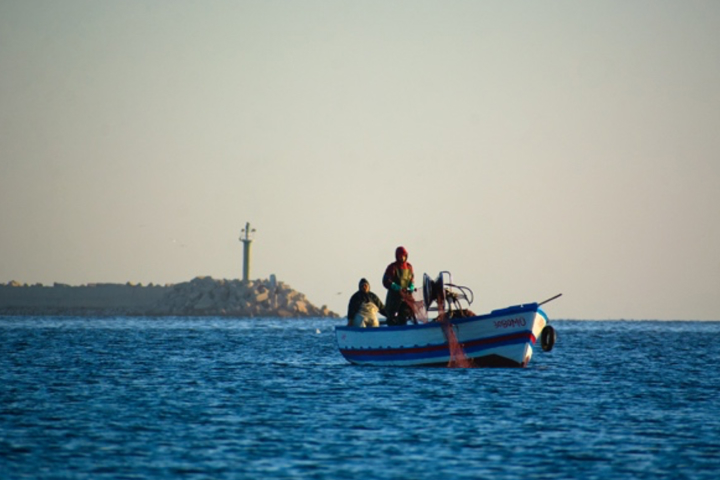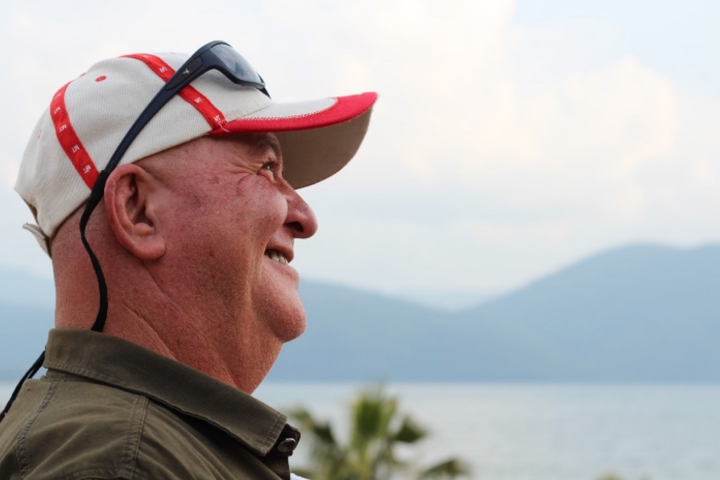The FishEBM approach: bridging conservation and coastal livelihoods
A holistic approach to the sustainable management of fisheries in the Mediterranean and the Black Sea

The Mediterranean and the Black Sea are treasures of marine biodiversity providing essential economic resources for coastal communities and beyond. Recent years have seen progress in reducing overfishing in the region, with the percentage of overfished stocks in the Mediterranean and the Black Sea falling below 60 percent for the first time, following a decreasing trend that started a decade ago. However, despite the positive developments, the sector remains under stress and fishing pressure is still at twice the level considered sustainable.
In 2022, the Global Environmental Facility (GEF) endorsed two projects to tackle overfishing and promote sustainable fishing practices in the region. The Mediterranean project, “Fisheries and ecosystem-based management for the blue economy of the Mediterranean” (FishEBM MED), is implemented in partnership between the Food and Agriculture Organization (FAO) and the United Nations Environment Programme (UNEP) and executed by the General Fisheries Commission for the Mediterranean (GFCM) and the Mediterranean Action Plan (UNEP-MAP) and its Specially Protected Areas Regional Activity Centre (SPA/RAC). Its Black Sea counterpart, “Fisheries and ecosystem-based management for the Black Sea” (FishEBM BS), is led by FAO and executed by the GFCM. These projects bring governments, scientists, and communities together, using an ecosystem-based management approach to reimagine ways to improve marine resources management.

©David Salvatori
Since the projects’ official launches in 2023, countries bordering the Black Sea – Georgia, Türkiye and Ukraine – and the Mediterranean – Albania, Algeria, Bosnia and Herzegovina, Lebanon, Libya, Montenegro, Morocco, Tunisia and Türkiye – have begun to experience the benefits of these initiatives. At the heart of the FishEBM mission is FAO’s Blue Transformation Roadmap for 2022–2030, which promotes integrated and innovative solutions to combat overfishing and protect marine ecosystems for the future. The FishEBM projects are helping to create a more sustainable and equitable future for fisheries by using innovative monitoring technologies and promoting inclusive governance, thereby supporting both people and marine ecosystems.
Building resilience through people-centered fisheries management
The FishEBM projects are fostering a transformative shift in fisheries management by placing fishers at the heart of the conversation. Anna Carlson, FishEBM Projects Manager, highlights how “ecosystem-based management implies a shift toward a more participatory approach to fisheries and a change in thinking about policy and management by both government agencies and stakeholder groups alike.” This shift is about turning fishers into active stewards of the ecosystems they rely on, ensuring that their voices are heard and their knowledge valued.

©FAO-GFCM/Sahbi Dorai
To do so, the FishEBM projects foster collective action and collaboration, ensuring that fishers remain key players in protecting and sustaining marine ecosystems. This is particularly important for small-scale fisheries (SSF), which account for 82 percent of the fleet and 61 percent of onboard employment in the region, making them difficult to manage from a top-down approach. The projects have been working to empower fisher-stakeholders through events like the SSF Forum series, which aim to share knowledge and best practices and foster the active involvement of fishers in fisheries management, leading to positive outcomes for coastal communities.

Sassi Alaya ©FAO-GFCM/Clémentine Laurent
Sassi Alaya, president of the fishers' association in Ghannouch, Tunisia, reflected on his involvement: “I have participated in several SSF Forum events, all of which were very valuable and useful, especially in developing guidelines. These events also taught us how to preserve and sustain coastal fisheries in the Gulf of Gabès and the Mediterranean Sea.”

Ibtissem Gobbaa ©FAO-GFCM/Clémentine Laurent
For Ibtissem Gobbaa, administrative director of the Development Group for Agriculture and Fisheries in Boughrara, Tunisia, the forums have been equally impactful: “I hope these SSF Forum events will continue and be repeated, because they were very enriching for fishers, administrators and professionals in the fishing sector.”

Mehmet Can Görgü ©FAO-GFCM/Clémentine Laurent
Mehmet Can Görgün, president of a local fisheries cooperative in Gökova Bay, Türkiye, shared a similar sentiment: “Being part of the SSF Forum has become essential in my life, helping me learn how other countries address problems and find solutions.”
Facilitating holistic fisheries management by piloting innovative solutions
In parallel with fostering stakeholder engagement, the projects are also advancing scientific research and environmental stewardship through a holistic approach piloting innovative actions. Innovative methods like DNA metabarcoding, which is being tested in Türkiye, and studies on previously unknown topics, such as one on underwater noise pollution from trawl fisheries carried out in Albania, are providing insights into novel ways of monitoring fish populations, identifying vulnerable marine ecosystems, and better understanding environmental stressors. Additionally, the projects implement targeted, collaborative actions to combat illegal fishing by strengthening national legislation and offering specialized training for fisheries inspectors, thereby enhancing enforcement capacities. These efforts are fostering resilient coastal economies and ensuring the long-term protection of marine resources.
The projects also promote social and economic sustainability by providing beneficiary countries with the tools to make fisheries management decisions that consider not only potential biological and ecological impacts, but also social and economic impacts on men and women along the value chain. Key initiatives include species-, area- or fishery-specific socioeconomic studies, as well as advancing Management Strategy Evaluations (particularly for data-limited stocks) and stakeholder engagement in the management advice process.

©Mariam Tsetskhladze
By combining science, policy and community action, and by piloting innovative approaches to address the full array of drivers and interactions within an ecosystem-based approach, the FishEBM projects are providing the tools to promote healthy marine ecosystems and resilient coastal economies for generations to come.
